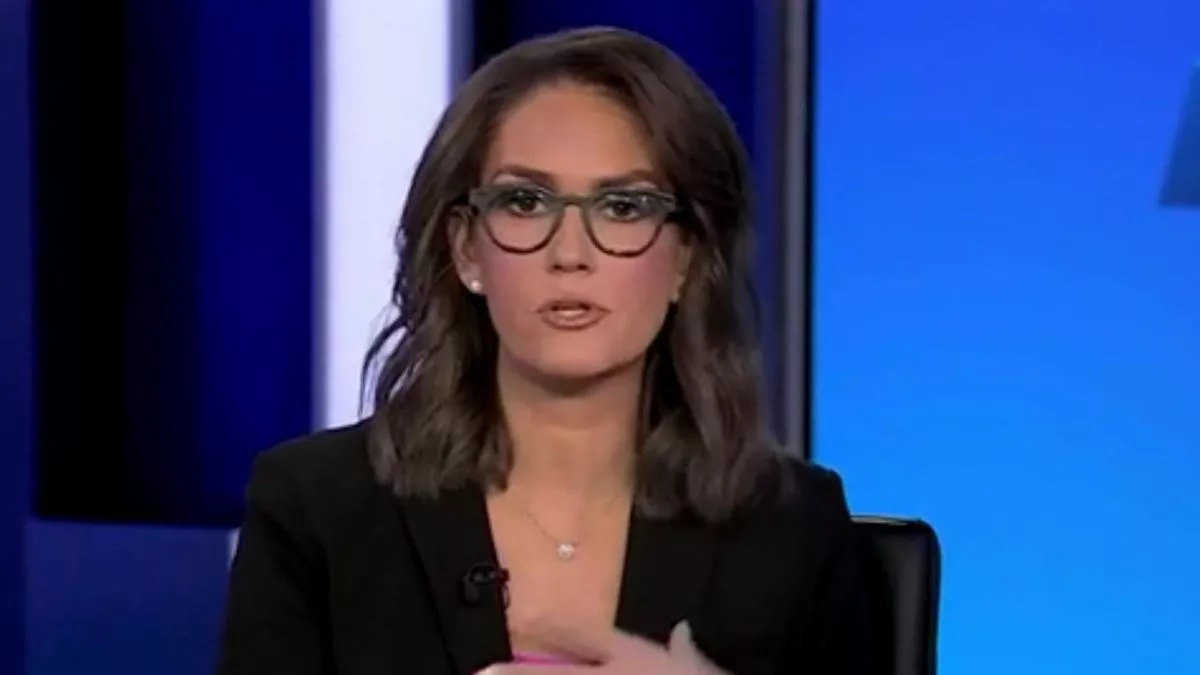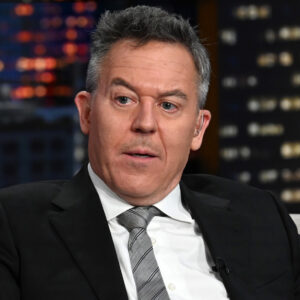Fox News Thrown into Chaos as Jesse Watters Clashes with Jessica Tarlov Over Her Wild Idea

In a recent episode of Fox News’ *The Five*, the airwaves were abuzz with tension as co-hosts Jesse Watters and Jessica Tarlov engaged in a riveting debate over her provocative suggestion related to the ongoing Israel-Palestine conflict. Tarlov, known for her liberal views, boldly proposed that former President Donald Trump should consider allowing Palestinians to immigrate to the United States until the recovery efforts in the Gaza Strip are complete. This audacious proposal ignited a firestorm of reactions from her fellow panelists, fueling an intense discussion that highlighted the complexities of international humanitarian crises.
A Fresh Perspective: Relocation of Palestinians

During the spirited exchange, Tarlov articulated her skepticism about the viability of a two-state solution, criticizing the recurring failures of past administrations and global leaders to adequately resolve the Israel-Palestine conflict. She firmly argued against the idea that neighboring Arab countries could or should absorb the estimated millions of displaced Palestinians. Instead, she called upon the United States to take a leading role in addressing this humanitarian issue, suggesting that an open-door policy could provide an immediate and compassionate solution during this crisis.
Watters, known for his more conservative viewpoints, responded to Tarlov’s proposition with a blend of humor and skepticism, implying that relocating Palestinians across various nations would face considerable logistical hurdles. He suggested that, while Tarlov’s intentions might be noble, the actual implementation of such a plan could lead to further complications. His light-hearted remarks on distributing Palestinian individuals among different countries served to underscore the magnitude of the proposal’s challenges while leaving Tarlov unfazed in her insistence on the need for humanitarian consideration.
The Humanitarian Challenge

The debate quickly evolved from humor to seriousness as Tarlov pressed her point further about the urgent need to address the long-term humanitarian repercussions that arise from the ongoing violence in the region. She emphasized that it’s not just a matter of relocating individuals; it’s about creating sustainable solutions that prioritize the needs of those displaced. Tarlov’s assertion that the U.S. has a moral obligation to step up and assist was met with both agreement and skepticism from the other panelists, which only intensified the discussion.
As tensions rose, the conversation also touched upon the comments made by Jared Kushner, former advisor to President Trump, regarding property development plans in Gaza. Tarlov expressed doubt over Kushner’s proposed initiatives, arguing that they represented a misguided approach to what she categorized as a humanitarian disaster. This further highlighted her concern that economic developments cannot substitute for urgent humanitarian aid and the necessity of a comprehensive peace strategy.
Looking Ahead: A Call for Pragmatism

The lively debate presented by Tarlov and Watters ultimately spotlighted the complexities surrounding the Israel-Palestine conflict. As both co-hosts clarified their positions, the conversation lingered on important themes like the responsibilities that come with international humanitarian aid and the delineation of the U.S.’s role in such a global crisis. Despite their differing viewpoints, both commentators recognized the need for a pragmatic approach that balances humanitarian assistance with geopolitical realities.
As the discussion drew to a close, it became evident that there are no easy answers to the Israel-Palestine situation. Emotions ran high, and the diverse opinions expressed served as a reminder of the multifaceted nature of the issues at play. Even as the hosts parted ways with unresolved tensions on the table, the dialogue emphasized the need for ongoing conversation and care when it comes to international affairs.
The contrasting perspectives offered by Watters and Tarlov highlight the necessity for therapies that address the immediate needs of Palestinians alongside long-term solutions to the conflict. As viewers witness the unfolding events, they are left with the challenge to consider how best to contribute to meaningful change in the region while fostering understanding and compassion.
Join the conversation on social media and share your thoughts about Jesse Watters’ and Jessica Tarlov’s debate. How do you think the U.S. can best support displaced Palestinians and contribute to a peaceful resolution of the conflict?






